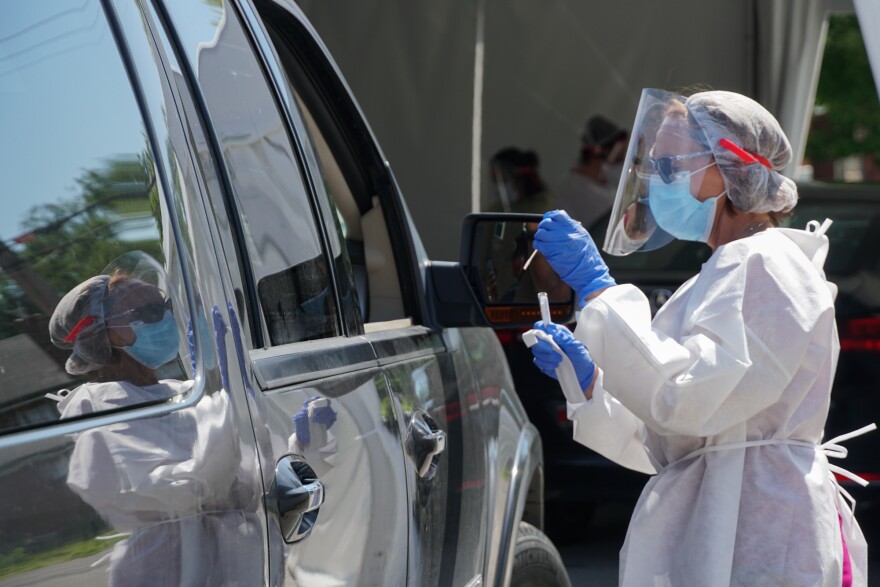Latinos have been hit hard by the coronavirus. But many who primarily speak Spanish have not been tested for the virus because they do not have enough information in their language.
Some Latinos have trouble following automated phone recordings in English and navigating a complex health care system, said Diego Abente, president of Casa de Salud, a clinic that primarily serves immigrants.
To address the need, hospitals and clinics have hired Spanish-speaking workers to screen immigrants for testing. The Immigrant Service Provider Network also pooled resources to translate information about the coronavirus.
“It became evident that the most efficient and effective way to reach the community is by coordinating our efforts and speaking with one voice and thinking about the community as one entity that can benefit together and/or suffer together,” Abente said.
Only a few clinics cater to immigrants who aren’t fluent in English in the St. Louis region. There is a shortage of bilingual health care workers in the region, Abente said.
“What we’re seeing through the COVID lens is that immigrants are in this group of vulnerable people that are not accessing health care in the levels they can and should be in our community,” he said.
Latinos who live in St. Louis County are more than three times as likely as most county residents to test positive for the coronavirus, County Executive Sam Page said.
In St. Louis, Latinos are nearly twice as likely to test positive for the virus as whites.
Federally qualified health centers in St. Louis also are helping bridge the language gap. About 40% of Affinia Healthcare’s South Broadway location clients are Latino.
That led Maribel, an unauthorized immigrant from Mexico, to seek help there. St. Louis Public Radio is not using her last name because she fears deportation.
Three months ago, Maribel had trouble breathing, but when she called a hospital’s automated phone line, she had difficulty describing her symptoms in English.
“I was so terrified, but I thought about it and if I wasn’t even infected, I was scared of catching it at the hospital or simply coming out of the hospital dead because I didn’t receive help,” she said in Spanish.
Maribel later contacted Affinia, and a Spanish-speaking worker helped her get a test.

After living in St. Louis for a decade, Maribel said the only doctor she will see is at Affinia. She said she feels more at ease sharing information with a doctor who can speak her language.
“It is very comfortable with them because I feel like they truly listen to my problems and make an effort to understand,” she said.
Affinia does not require a Social Security number or driver’s license. Instead, workers mark the line as N/A on the form and continue care as normal.
Since Affinia’s South Broadway location opened its drive-in testing center in April, Latinos have accounted for 22% of more than 1,500 tests, according to a spokesperson. Nurses have booked the clinic at nearly full capacity every day, and sometimes the line of cars spans more than two blocks.
The clinic has translated quarantine instructions in eight languages, including Nepali, Burmese, Arabic and Somali.
A number of patients have been turned away from testing at urgent care centers and emergency rooms because they did not meet testing requirements, said Dr. Chris Prater, a Washington University physician who works at Affinia.
A majority of Prater’s patients at the clinic are refugees. He said most of them are getting tested through Affinia.
“Many patients don’t even feel comfortable making that call and saying what language they want,” he said.
Now that hospitals and clinics have provided translators, Prater said he is focusing on advising his patients on how to avoid infection in the future. Most of his patients are grocery store clerks, janitors, agrigultural workers or have other jobs that do not allow them to work from home.
“My patients can minimize the risk of contracting coronavirus, but cannot fully eradicate the risk,” he said.
Follow Kayla on Twitter: @_kayladrake
Our priority is you. Support coverage that’s reliable, trustworthy and more essential than ever. Donate today.
Send questions and comments about this story to feedback@stlpublicradio.org



